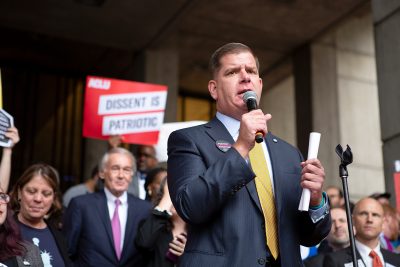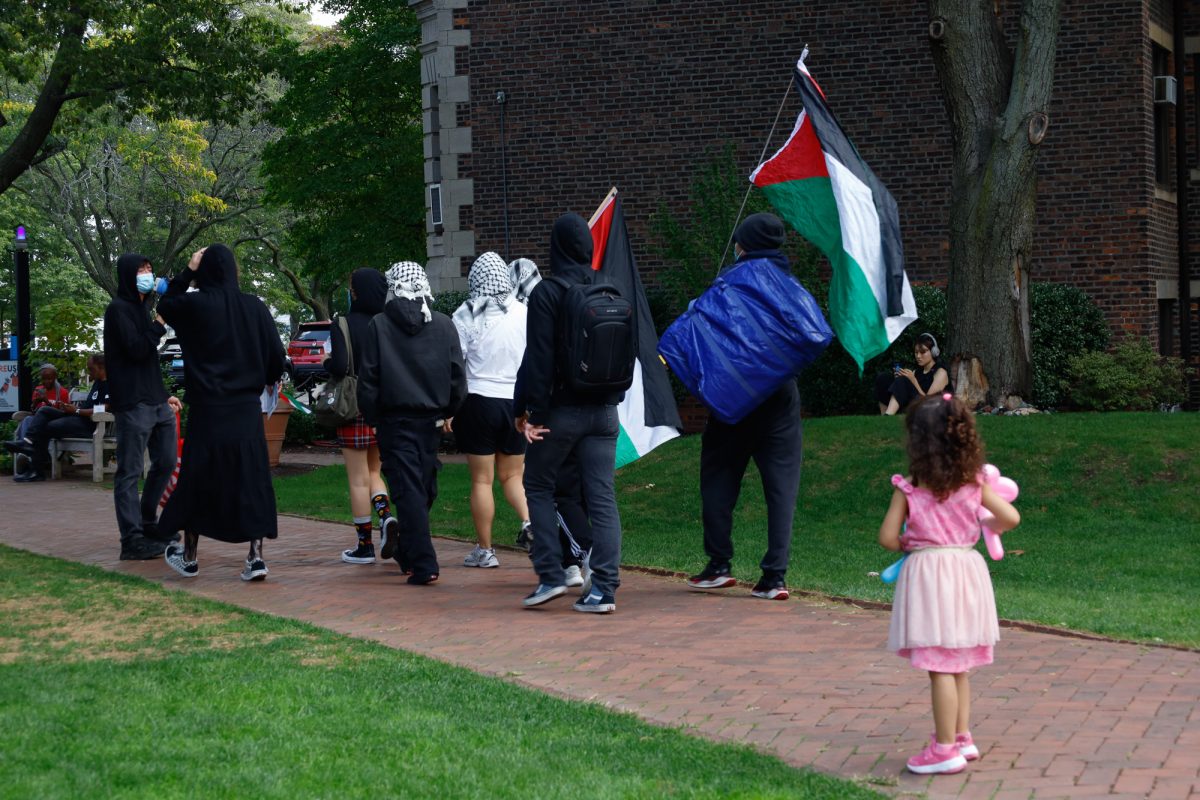Mayor Marty Walsh has deep roots — and a new future — in the labor movement.

At 21, he joined Boston’s Laborers Local 223 Union, maintaining active involvement for over 20 years. Now, the 53-year-old is being pulled to D.C., where he awaits a likely confirmation as President Joe Biden’s Secretary of Labor.
Having served in the Massachusetts House of Representatives since 1997, Walsh announced a bid for mayor in May 2013, emphasizing reforms to the Boston Public School system and improved economic opportunities across the city.
Backed by local and national unions, Walsh won a narrow victory against opponent John Connolly, replacing former Boston Mayor Thomas Menino — who retired after 20 years in the seat.
Throughout his two terms, the Dorchester-native defended the rights of immigrants, worked to improve access to affordable housing, prioritized green development and spearheaded a public health campaign to stop the spread of COVID-19.
In 2017, Walsh promised to continue providing shelter for Boston’s immigrant community, following an executive order by then-President Donald Trump threatening to withhold federal funding from sanctuary cities.
“If people want to live here, they’ll live here,” he told reporters at a press conference that January. “They can use my office, they can use any office in this building. Any place they want to use.”
That same year, his administration launched the Greater Boston Immigrant Defense Fund, which seeks to provide legal education and services to the city’s immigrant communities. He maintained a commitment to the fund, allocating $50,000 from the city’s fiscal year 2020 budget to the program in 2019.
Walsh announced a reactivation of Boston’s Human Rights Commission after an over 20-year hiatus in 2019, adding that it would focus on ensuring equal protection under the law for all Bostonians — regardless of immigration status.
Walsh also pioneered Imagine Boston 2030, a crowdsourced urban plan to update the city’s architecture with a focus on inclusive economic growth, environmentally sustainable development and increasing affordability. Since its announcement in 2015, the campaign has worked to address the input of over 15,000 residents.
Boston City Councilor Kenzie Bok said Walsh’s commitment to affordable housing would likely be his legacy as mayor.
“I think in general, on housing,” she said, “he’d really try to throw the kitchen sink at it.”
She noted that in 2017, the Walsh administration added support for public housing to the city budget for the first time. Since then, Bok has sought to expand the use of city funds in housing.
“That initial commitment, using the capital plan that way, is something that the Walsh administration can take credit for,” Bok said.
Earlier this month, the Boston Zoning Commission voted to add fair housing requirements to the city’s zoning code — a move Walsh fully endorsed. And at the beginning of the year, the Walsh administration created Boston’s first city-funded rent voucher program, which aims to subsidize rents for the city’s most vulnerable individuals, including those ineligible for state-level subsidies.
Just two days before Walsh’s nomination as Labor Secretary was announced, Bok said she and the mayor were calling the State House in an effort to secure additional funds for housing and inclusive development.
When the COVID-19 pandemic first hit, Bok said Walsh remained receptive to councilors’ suggestions and maintained a “hands-on” approach to informing the public.
“At one point, we were in the basement of City Hall packing those information packets together, when we did that big city info drop on COVID,” Bok said. “In that moment, it just felt like everybody was kind of a pair of hands for getting the info out, and he as well.”
As the pandemic raged on, Boston and the rest of the nation witnessed a summer of protests in response to the police killing of George Floyd in Minneapolis.
In late May, Walsh spoke at a prayer vigil for Floyd, imploring Bostonians to “reflect on the pain and the fears” of their Black neighbors. He added that racism should be combated with the same attention and urgency as the pandemic.
Two weeks later, his administration declared racism a public health crisis.
Walsh had previously worked to reform the Boston Police Department, funding a permanent body-camera program in April of 2018.
But when Walsh proposed a 20 percent cut to the BPD’s $61 million overtime budget in mid-June, local advocates — including Bok — said the move was not enough. That money would be allocated to anti-racism initiatives in the city.
In continuation of these protections, Walsh filed an ordinance with the City Council in November to create an Office of Police Accountability and Transparency, an independent organization of community members tasked with reviewing internal investigations by the BPD.
Bok said Walsh “holds people in his heart,” and expressed confidence in his ability to advocate for workers without getting lost in bureaucracy.
“He’ll be in D.C. in administrative office buildings that are setting big regulations and rules that can feel kind of far away from the everyday,” she said. “He’ll always, because of who he is, be carrying with him, ‘How does this actually affect a worker, how does this cash out?’”


















































































































